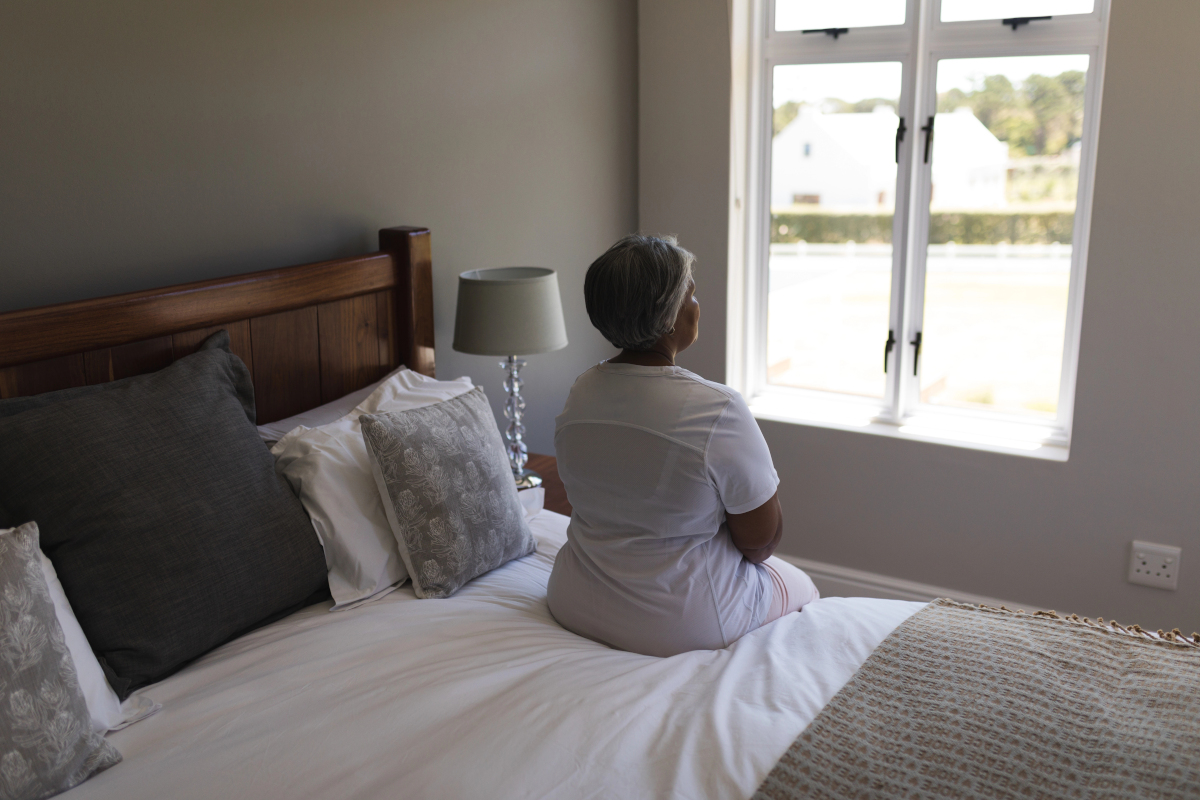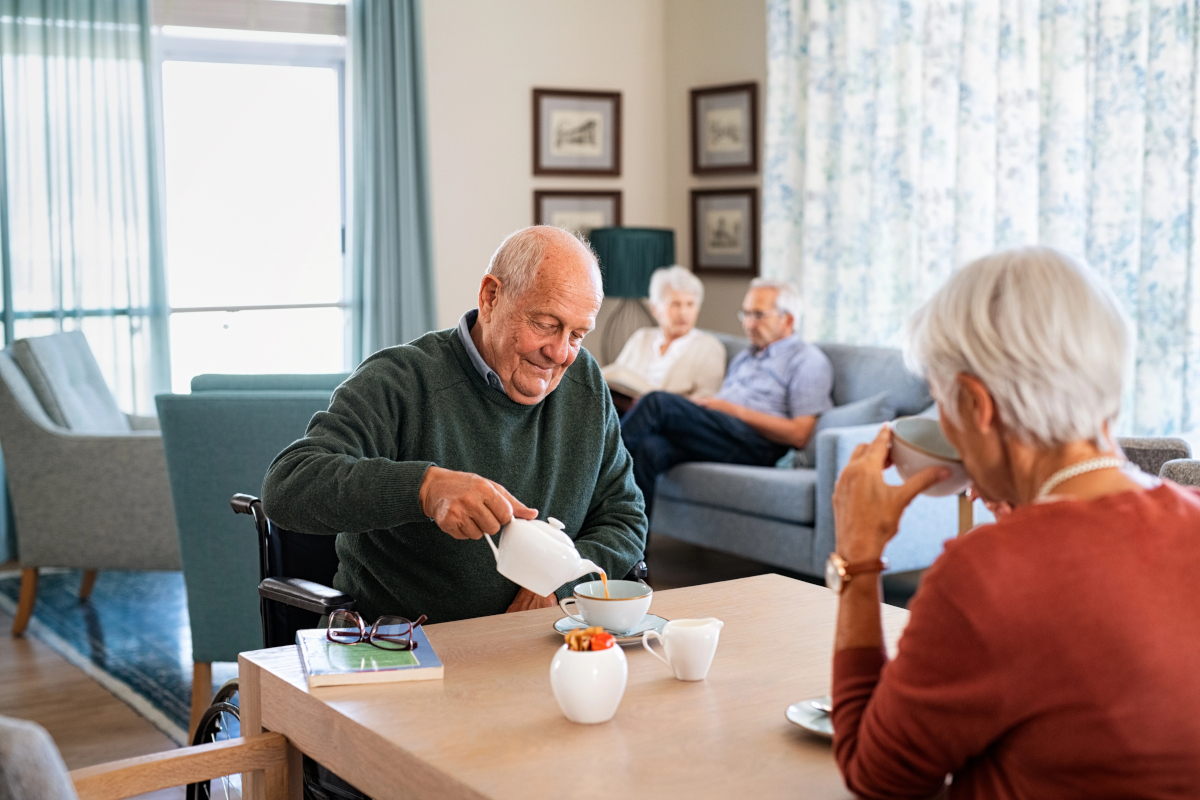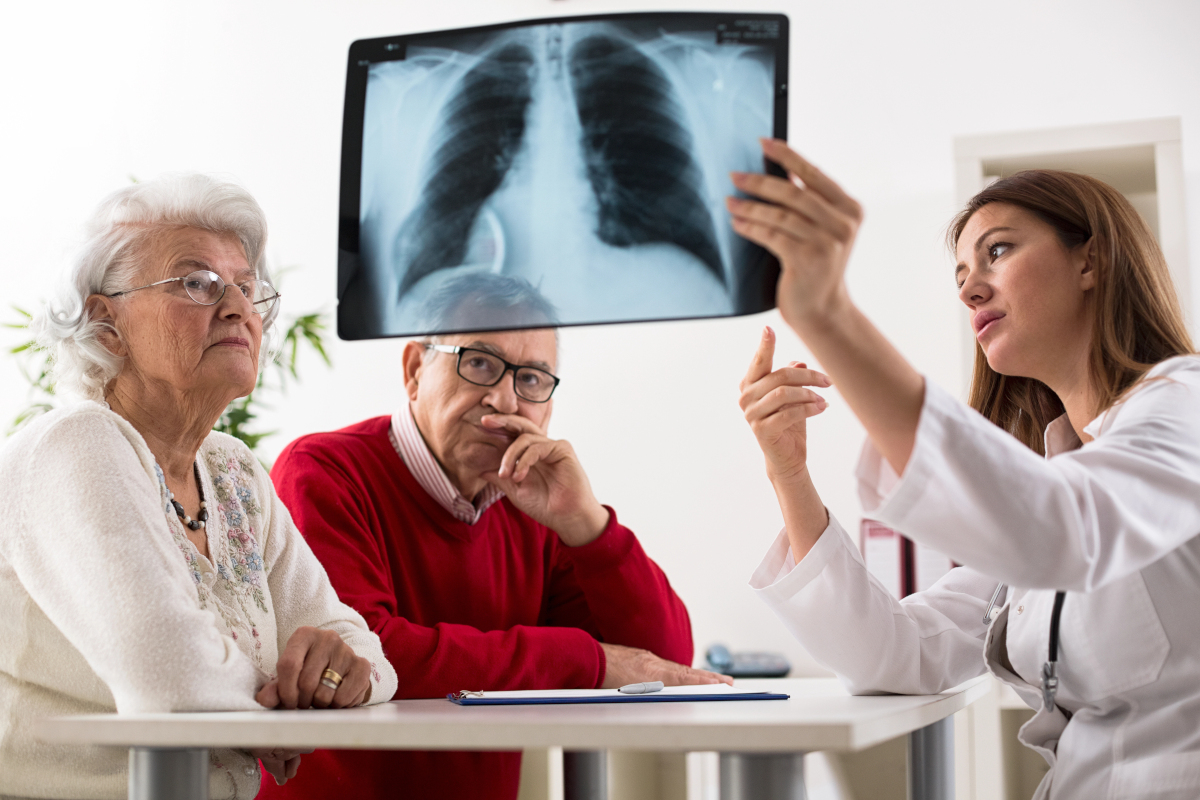Staying healthy is a big concern as we grow older. The risk of developing a chronic disease increases with age. According to the National Council on Aging (NCOA), approximately 80% of older adults are diagnosed with at least one chronic condition while 77% have two.
The most common conditions include Alzheimer’s disease, cancer, stroke, diabetes, heart disease, and emphysema. Four of those, including diabetes, stroke, cancer, and heart disease, cause nearly two-thirds of deaths annually. And 90% of Americans over age 55 are at risk for high blood pressure.
Many factors affect your likeliness of developing a chronic condition. Genetic factors cannot be changed. However, there are factors that you can control. Living a healthy lifestyle will give you the best chance of avoiding these problems or give you a leg up when managing them if they appear.
What can you do to start living healthy this year?
- Eat a Healthy Diet
Dietary changes can be difficult, especially if you have been eating the same foods for years. Now is the time to make positive changes in your menu.
You don’t have to do it all at once. Instead, start making small improvements to your diet. For example, instead of eating two pieces of white toast, start replacing one with whole grain. Instead of drinking juice every day, you can eat an orange a few days a week. Choose whole fruit over fruit juice and switch to low-fat snacks.
Incorporating more fiber into your diet is also good for weight loss and reduces the risk of heart disease, diabetes, and colon cancer.
- Start Moving and Stay Active

Start moving and stay active as much as you can. The amount of exercise needed will vary based on age and physical ability level. It’s best to try and work in at least 20 to 30 minutes of physical activity almost every day. This should include strength and aerobic exercises.
If you need motivation, try working out with a partner. Having someone else to hold you accountable can keep you on track.
Remember to consult your physician if you have mobility limitations, health conditions, or other concerns about exercise. They can provide advice to help you build a safe, effective workout routine.
- Talk About Medication Management
Be your own advocate when it comes to medication management. Ask questions when new medications are prescribed. Go over possible side effects and interactions with your doctor.
Some prescriptions may cause drowsiness, appetite loss, or allergic reactions. Be aware of what could happen so you can seek help or make safe decisions about when and where you take your medication.
Also, have a system in place to ensure that you take the appropriate dose each day as recommended. It’s easy to forget and miss days or take too much without proper monitoring.
- Make Sure You Get Restful Sleep

Take steps to ensure that you get restful sleep every night. Exhaustion harm your overall mental and physical health. Start winding down before bed by performing calming activities and turning the lights down.
It’s best to sleep in a cool, quiet bedroom. Go to bed and wake up around the same time each day. If you notice changes in your sleeping habits, talk to your doctor. Insomnia or over exhaustion could be a sign of an underlying medical problem.
- Take Prevention Seriously
Prevention should play a big role in your efforts to stay healthy. Make sure you undergo health screenings for cancer, heart conditions, and cholesterol levels. Talk to your doctor about any other tests that might be beneficial based on your medical history and risk factors.
- Stay Up to Date on Eye Exams
Did you know that your eyes can reveal a lot about your body’s overall health? Stay up to date on your eye exams.
If you notice any changes in your vision, schedule an appointment right away. It could be something minor like a slight change in prescription, or it could be a sign of something more severe like advanced cataracts, glaucoma or a retinal disorder.
- Become a Social Butterfly
Socializing is very good for seniors. It can reduce the risk of depression, improve cognitive abilities, and increase lifespan. People who spend time with friends and family are less likely to experience feelings of loneliness. They also tend to have less anxiety and higher self-esteem.
Your mental wellbeing is closely tied to your physical health, so this should not be ignored at any age. However, it’s even more important for seniors who are often at a higher risk due to isolation and mobility changes.
- Schedule Regular Dental Exams
Along with your eyes, your teeth can also show signs of changes in your health. Older people tend to have a higher risk of developing cavities. If untreated, this can lead to infections.
According to the Centers for Disease Control and Prevention (CDC), more than one in four adults in the U.S. have untreated tooth decay. Oral cancer is most common in older adults over age 55, especially those with a history of heavy drinking and smoking. Chronic diseases like stroke, diabetes, arthritis, and heart disease increase the risk of developing poor oral health.
- Stop Unhealthy Habits
If you engage in any unhealthy habits, now is the time to stop. That includes smoking, overeating, excessive drinking, overuse of painkillers, poor stress management, and anything else that could affect your health. There are organizations and programs available if you need assistance.
Pinnacle Peak Assisted Living provides seniors with a comfortable, safe place to live life to the fullest. Residents have access to medication management, dieting assistance, on-call physicians, and more. Participate in daily sit-down activities as well as weekly trips, movie nights, garden cookouts, bingo, and other opportunities to socialize. Contact us today to take the next step toward a healthy retirement.





